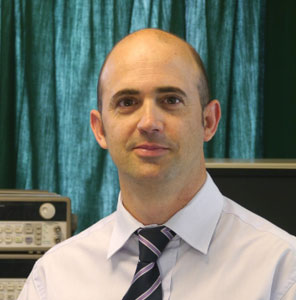PhD (2013) by Universidad Nacional de La Plata (UNLP) and Electronic Engineer by Instituto Tecnológico de Buenos Aires (ITBA), Argentina. Currently Full Professor, Director of the Industrial Electronics Research and Development Center (CIDEI) at ITBA. Academic Director of the Electronics Engineering career (ITBA).
Several years of experience first in the instrumentation & control industry, and then in education and research on electronics. Currently acting as director of the electronics engineering career, professor and researcher at ITBA. Worked mainly with power converters: DC/DC and inverters, and with electronics components such as capacitors and magnetics. Always focused on safety, reliability, quality and environment to meet the expectations of the industry, adding empathy and searching for didactic approaches for teaching.
Main skills are power electronics hardware (from circuit analysis and simulation to PCB design), magnetics (understanding how and why it works), teaching, and managing people in multilingual environments. His research interests are developing and analysis of power electronics and converters, particularly of Multilevel Current Source Inverter (MCSI), fast control and modulation techniques based on FPGAs, and control of power devices.
